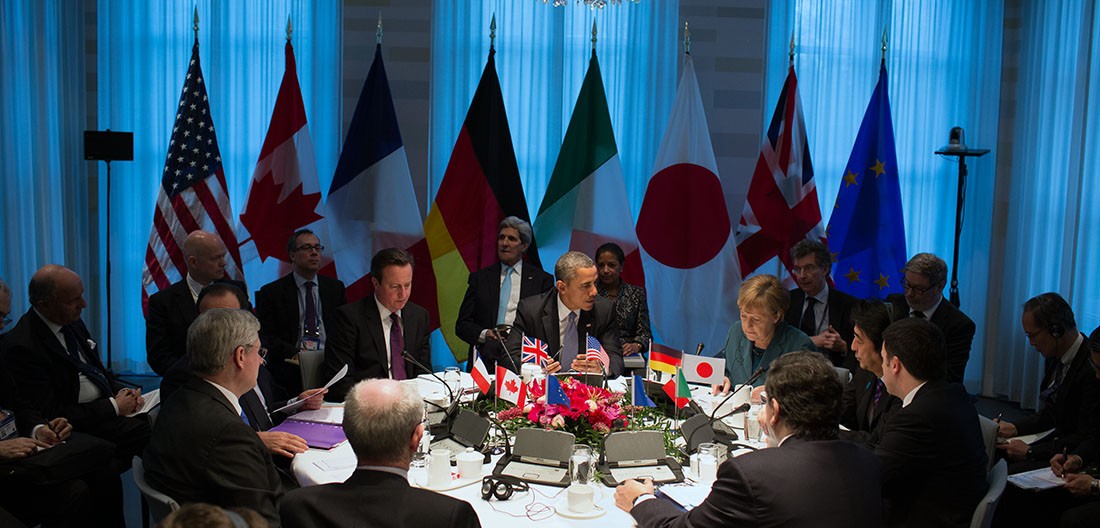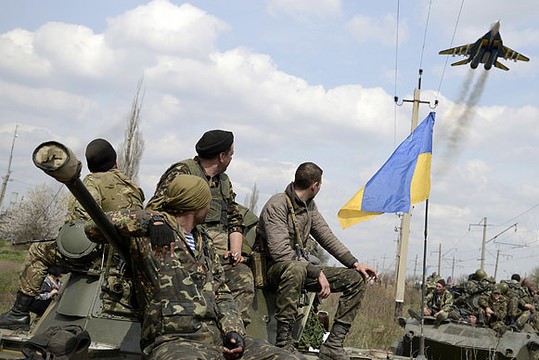By: Ihor Stratan
The current sanctions imposed on Russia in response to the military crisis in Ukraine have an unusual legal status under international law because they were not introduced by an international organization but rather by individual countries. The sanctions against Russia have been in response to widely recognized gross violations of international law and, hence, reflect the position of a large number of wealthy and influential sovereign states. The domestic nature of the sanctions raises the question of whether they should be considered a practical actualization of another international law doctrine. In this piece, I therefore delve into the nature of these sanctions by focusing on their role as a non-violent response to violators of international law.
International sanctions imposed by one country or union take many different forms. For example, the European Union is currently imposing five types of sanctions against Russia: 1) diplomatic measures; 2) visa bans and asset freezes; 3) restrictions specific to Crimea and Sevastopol; 4) economic sanctions; and 5) measures concerning economic cooperation.
In the United States, the Office of Foreign Assets Control (OFAC) in the Department of the Treasury enforces and administers sanctions in relation to the conflict between Ukraine and Russia. There are many legal instruments which currently help the OFAC administer and enforce the sanctions against Russia. These legal instruments include Executive Orders 13660, 13661, 13662, and 13685; the International Emergency Economic Powers Act (IEEPA) (50 U.S.C. §§ 1701-1706); the National Emergencies Act (NEA) (50 U.S.C. §§ 1601-1651); and Ukraine-Related Sanctions Regulations. The existence of so many domestic legal authorities that regulate Ukraine-related sanctions indicates the level of importance for the US.

President Obama holds a G7 Leaders Meeting to discuss the situation in Ukraine, at the Prime Minister’s residence in The Hague, the Netherlands, March 24, 2014. (Official White House Photo by Pete Souza)
The question of legal status under international law remains given that the aforementioned sanctions have been imposed under domestic law. International organizations, particularly the UN Security Council, have not yet sanctioned Russia for its violations of international law in Ukraine, likely due to Russia’s power of veto in the UN Security Council. It is difficult, therefore, to justify sanctions under international law in the absence of a UN Security Council finding under Article 39 of the UN Charter regarding “the existence of a threat to peace, breach of the peace, or act of aggression.”
Given the lack of UN Security Council involvement, one must look to different international legal instruments to determine the sanctions legality under international law. For example, the applicability of the Responsibility to Protect to the ongoing sanctions against Russia is very questionable. The fact is that the sanctions at issue are not directed against Ukraine as a sovereign state. The doctrine is not directly applicable to cases of external aggression, nor has it direct relevance to the actions committed by an aggressor in the territory of another sovereign state. This does not mean that the sanctions are illegal under international law, but an international law justification must continue to be sought.

